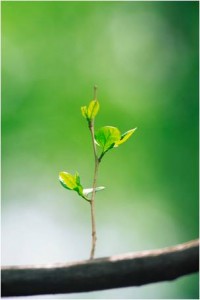By Justin K. Lacey (Guest Blogger)
What does sustainability mean? And in particular, what does it mean for entrepreneurs and small business owners?
With so much talk these days about the environment and sustainability, I am sure these are the sorts of questions many small business owners ask themselves. Unfortunately, there are no easy answers.
For most, the science is indisputable; we are witness to unprecedented changes in our environment. The polar ice caps are melting, sea levels are rising and low lying coastal areas face an uncertain future. Unfortunately, the global objective has slipped. Our challenge now is to limit global warming to just 2 degrees Celsius, and avoid the catastrophic impacts associated with a 5 to 6 degree Celsius increase in global temperatures.
There are some that challenge the cause of climate change. Is it anthropogenic or a result of other forces or events naturally occurring in our environment? I would argue this is a distinction without a difference. Our climate is warming, and the risk of inaction is simply too great. Whether we like it or not, sustainability is our challenge for the 21st century; it is the context for businesses large and small.
So, what is sustainability? Some describe it as the triple bottom line; people, planet and profit. I have heard others describe it as equilibrium amongst economy, efficiency and equity. The concept of inter-generational dependence is favored by some, describing sustainability as “development that meets the needs of the present without compromising those of the future generations.” [WCED, 1987]
I find most, if not all, definitions of sustainability too abstract for application in the world of business. For me, a definition must have relevance in my daily routine; it must give me direction on how my behavior should change, provide guidance on what I should do differently when I walk into the office on Monday morning. A definition that is too broad means everything, and means nothing.
Today, I heard a definition of sustainability that I found particularly appealing and useful for today’s small enterprises. Coro Stranberg, Principal of Strandberg Consulting, put it this way: “Sustainability is creating business value by incorporating environmental and social strategies into your business”. In terms of implementation, Coro went on to suggest that the best approach is to try and leverage your existing business plan; find opportunities to incorporate the concepts of sustainability that complement existing business strategies. However, the environmental and social strategies that create the greatest value for your business will likely be unique and depend upon factors specific to your business environment.
Tomorrow, I will be writing about how the Sustainability movement needs its own “Marlboro Man”.
Justin K. Lacey is the founder of Walk Softly Communications and a friend of Retail Prophet

